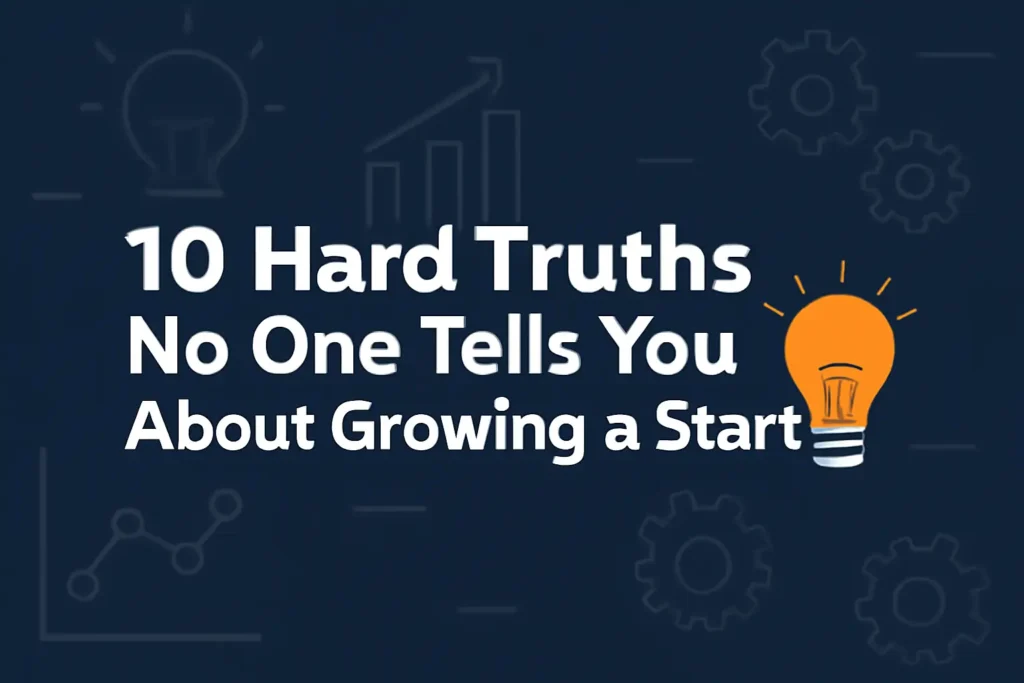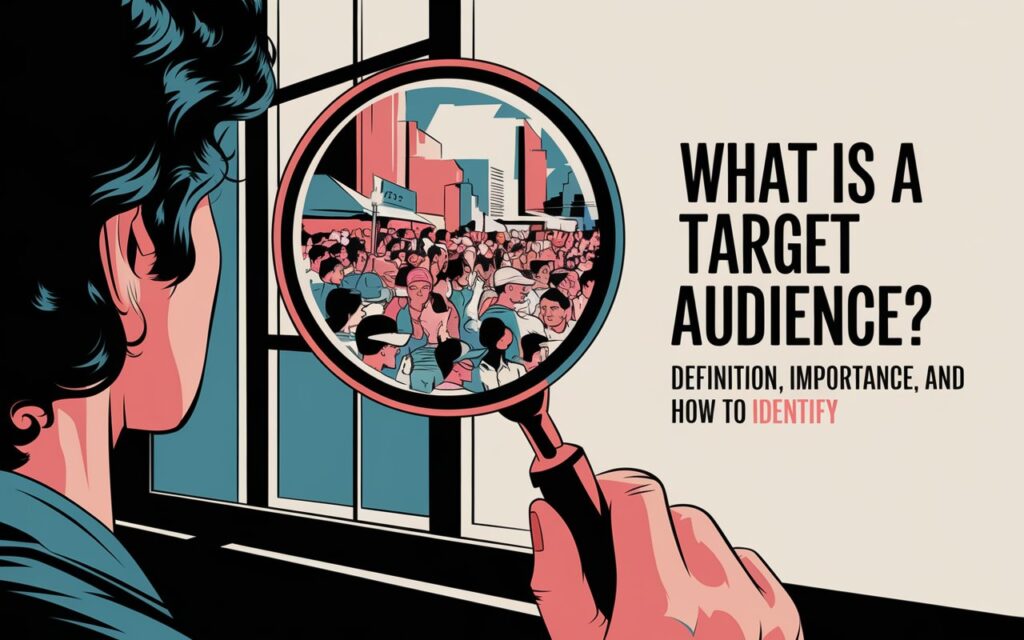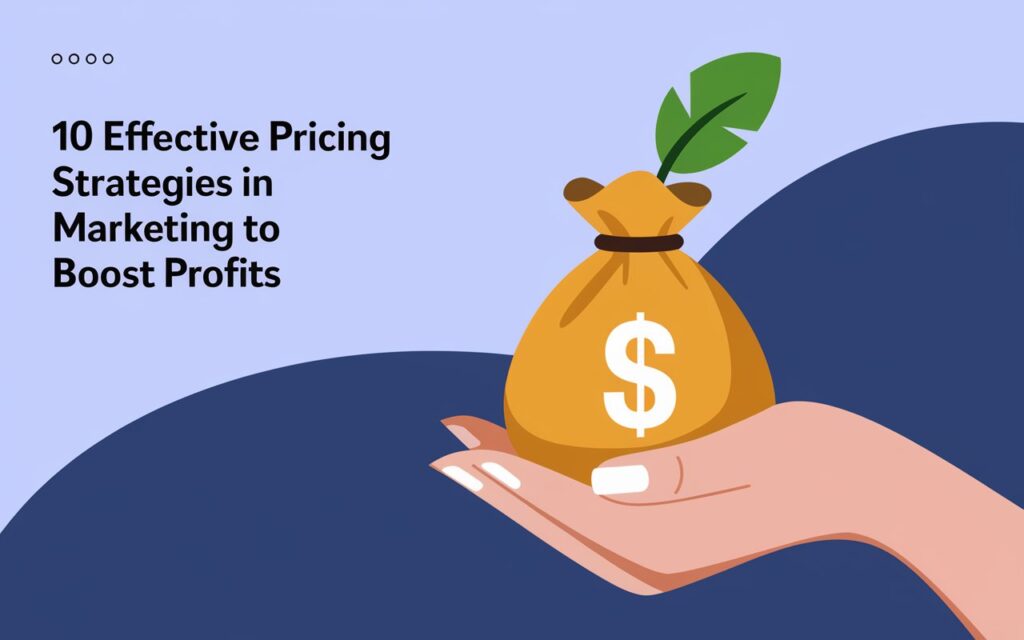Stepping into the world of startups is thrilling—you’re pursuing a dream, breaking new ground, and perhaps even hoping to change the world. But the startup hustle comes with a hidden layer of realities that rarely make it into the “success stories.” If you want to maximize your chances (and your sanity), these are the 10 hard truths no one tells you about growing a startup.

1. Growth Is Relentless, Exhausting, and Rarely Glamorized
Behind every celebrated “overnight success” is a founder (and their team) working relentless hours, sacrificing weekends, and fighting burnout. The grind is real and unforgiving. Most stories skip over the exhaustion, but if you’re not prepared to push through countless late nights, setbacks, and sacrifices, your startup won’t make it through the valleys of growth.
Insider advice: Prioritize self-care and build routines to recharge. Hustle culture can be inspiring, but burning out helps no one.
2. No One Cares as Much as You Do
Your passion may be contagious, but teammates, friends, and even family often won’t feel the same weight or urgency as you. Employees, investors, and outsourced talent want your startup to succeed—just not at the expense of their own goals or happiness. This can be lonely and frustrating.
Lesson: Learn to separate emotion from management. Develop systems and lead by example, but make peace with the fact that you alone carry the founder’s burden.
3. Money Doesn’t Come as Fast (Or as Easily) as Stories Suggest
You’ll hear about startups that raise millions “in days” or hit profitability in their first quarter—but these are outliers. In reality, funding takes persistence, creativity, and sometimes years of traction. Revenue? It rarely exceeds expenses early on. Profitability can seem a distant dream.
Truth: Be honest with your financial projections, manage cash flow tightly, and prepare for lean stretches.
4. Failure Isn’t Just Possible—It’s Probable
More than 90% of startups fail within five years. Sometimes the product isn’t right, the market isn’t ready, or competitors outpace you. The reasons are often outside your control. What matters is how fast you learn, reflect, and adapt from failure.
Lesson from the trenches: Treat every setback as a data point. Avoid blaming others, and don’t take early wins as a sign you’ve “made it.”
5. Scaling Too Soon Can Kill Your Startup
It’s tempting to think “If only I had more people/funding/features, we’d grow faster.” But premature scaling—hiring in anticipation, expanding without solid systems, or pouring cash into marketing before product-market fit—is one of the fastest routes to collapse.
What founders wish they’d known: Don’t race to scale until you’ve validated product-market fit, have repeatable revenue, and some operational stability.
6. The “Hustle” Can Wreck Your Mental Health
The startup life can be isolating, stressful, and mentally taxing. The pressure to appear relentlessly positive and “crushing it” often means hiding struggles—even from those closest to you. Burnout and founder depression are alarmingly common.
Survival tip: Build a genuine support network, seek peer or professional support, and normalize conversations about mental health in your startup’s culture.
7. Not All Advice Applies to You
Startup blogs, “growth hacks,” and mentors often spout advice that worked for someone, somewhere. But markets, products, and founders are all unique; what works for one isn’t guaranteed for another. Blindly following trends can waste your time and resources.
Wisdom: Consider context before applying lessons. Collect feedback, but trust your unique insight and data above generic guidance.
8. Most Mistakes Are Repeats—Learn From Others, Not Just Yourself
Founders can be stubborn, and many prefer to “learn by doing.” Yet, most startup-killing mistakes are well documented: ignoring market reality, burning cash too quickly, growing the wrong team, or glossing over product weaknesses.
Why this matters: Studying both failures and successes accelerates your own learning curve—and might help you dodge a fatal mistake.
9. Building a Great Product Isn’t Enough
Innovative technology or a brilliant platform won’t bring users on its own. Many talented founders “build it” but misjudge the challenge of distribution, marketing, and storytelling. Growth depends as much (if not more) on customer understanding and sales as on code or creativity.
Founders’ hard lesson: Invest as much time in sales, branding, and support as you do in product. You have to sell the solution, not just invent it.
10. The Endgame Is Never What You Expected
Very few startups “finish” where they started. Your idea, team, or even market may need to change dramatically to survive. Letting go of your original vision, pivoting, or shutting down a project—these are as much a part of the game as unicorn dreams.
Key to survival: Stay adaptable, measure the right metrics, and don’t let ego or nostalgia hold you back from necessary changes.
Conclusion: Embrace the Hard Truths—And Grow Wiser
Building a startup is one of the hardest professional journeys you’ll ever take. Embracing these hard truths isn’t pessimism—it’s the foundation for resilience, wisdom, and ultimately, sustainable success. Remember, every “overnight” triumph endured years of hidden, unglamorous work behind the curtain. Learn from others, check your ego, and surround yourself with honest feedback and support.
Your journey is uniquely yours, but these truths are nearly universal. Keep them close—they won’t do the hard work for you, but they’ll keep your compass pointed towards real, hard-won growth.
Read: Effective Startup Marketing Strategies for Fast Growth





